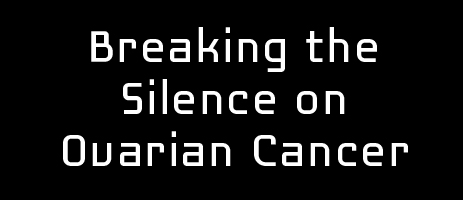Breaking the Silence on Ovarian Cancer

NOCC Spreads the Word on Early Warning Signs
Often referred to as the “silent killer” because symptoms don’t appear until the disease is in an advanced stage, ovarian cancer ranks fifth in cancer deaths among women, but accounts for more deaths than any other cancer of the female reproductive system, according to the American Cancer Society. Approximately 20,000 new cases of ovarian cancer are diagnosed each year.
The celebrity physician Dr. Mehmet Oz has teamed up with the National Ovarian Cancer Coalition (NOCC) to create a revolutionary one-sheet. It is the best weapon against a misdiagnosis, as many of the ovarian cancer warning signs can mimic other less serious conditions. What are the early warning signs?
First Early Warning Sign: Bloating
Bloating is so common, but when should women worry? The key is to look for changes. If the bloating is new, occurs almost daily and persists more than two to three weeks, you need to see a doctor.
Second Early Warning Sign: Pelvic or Abdominal Pain
Ovarian cancer causes pelvic or abdominal pain because of the way it grows. The peritoneal surface is like saran wrap, with nerves on it, so it is sensitive to distention and movement. Women who have pain should also address how bad the pain is at its worst on a scale of 1 to 10 – 1 being mild and 10 is severe.
Third Early Warning Sign: Difficulty Eating or Feeling Full Quickly
The question women need to answer is: how much of their meal can they typically eat before they feel full? When the ovary releases chemicals and slows the gut down, it makes the transit times through the intestines slower. Women can experience constipation but also can have difficulty eating because things aren’t moving and making room for food. Then as the cancer spreads, it can actually implant on the intestine and cause partial blockages, which then can create nausea, vomiting and difficulty in eating.
Fourth Early Warning Sign: Feeling a Frequent or Urgent Need to Urinate
So many doctors dismiss this symptom as a UTI or bladder infection. You can tell the difference between that and something more serious by using a dipstick test. Ask your doctor for it when you have chronic symptoms every day for more than 2 weeks.
Print out this Ovarian Cancer Checklist Of Symptoms and take it to your doctor’s office if you feel you have several of these symptoms.
For information, facts, and the one-pager from Dr. Oz, go to www.ovarian.org






